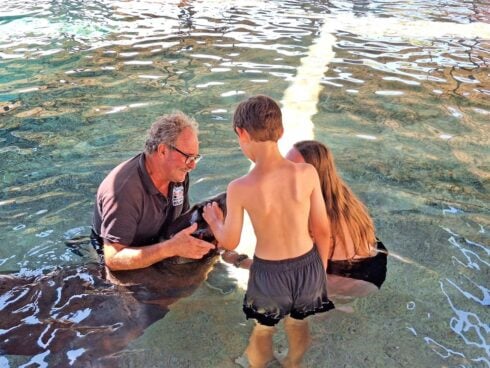BRITS hoping to swap drizzle for sangria may soon need to pay €20 just to enter Spain – but here’s the twist: you won’t need to until 2027.
The EU’s long-delayed ETIAS system – a digital travel permit for non-EU visitors – has been branded a sneaky new ‘Brexit border tax’, and Brussels has just announced they’re TRIPLING the price from the original €7 to enter Schengen agreement countries.
But amid the fury, one fact has gone under the radar: the charge won’t kick in until at least April 2027.
Here’s why. The whole scheme hinges on the EU’s Entry/Exit System (EES) – a biometric passport system that scans fingerprints and faces. Originally set to launch in 2024, it’s now delayed until October 2025, with full rollout expected by April 2026.
Only once that’s working smoothly will ETIAS go live – probably in October to December 2026. And even then, there’ll be a six-month grace period where the permit is optional. So April 2027 is the earliest you’ll actually need one.
READ MORE:
- Hotels warn of holiday chaos for millions of Brits and Americans coming to Spain due to new EU travel rules
- Action demanded to stop passport control delays for UK travellers at Costa Blanca airport
- Spain confirms Brits DON’T need travel insurance after reports they could be fined €7k
When it does arrive, ETIAS will apply to all visa-exempt countries, including the UK, USA, Australia and Argentina, and will cover most EU nations plus Iceland, Norway, Switzerland and Liechtenstein – though not Ireland which is not in the Schengen area.
Travellers aged 18–70 must pay €20 and submit detailed personal info: passport, job title, first night’s address, even past criminal convictions. Sound like a visa? It’s not – technically. But if it looks like a visa, costs money like a visa and needs an app, many say it’s a visa by stealth.
The system will be valid for three years, or until your passport has less than three months left. And while it’ll be processed in minutes for most, red-flagged applicants could wait up to 30 days or even be denied.
Warning: scam sites are already offering fake ETIAS approvals – the official website is europa.eu/etias, and nowhere else.
So yes, Brussels wants your money – but at least they’re making you wait to hand it over.
Click here to read more Olive Press Travel News from The Olive Press.









Irish passport holders will not require an ETIAS nor will UK citizens who are protected by the Brexit withdrawal agreement.